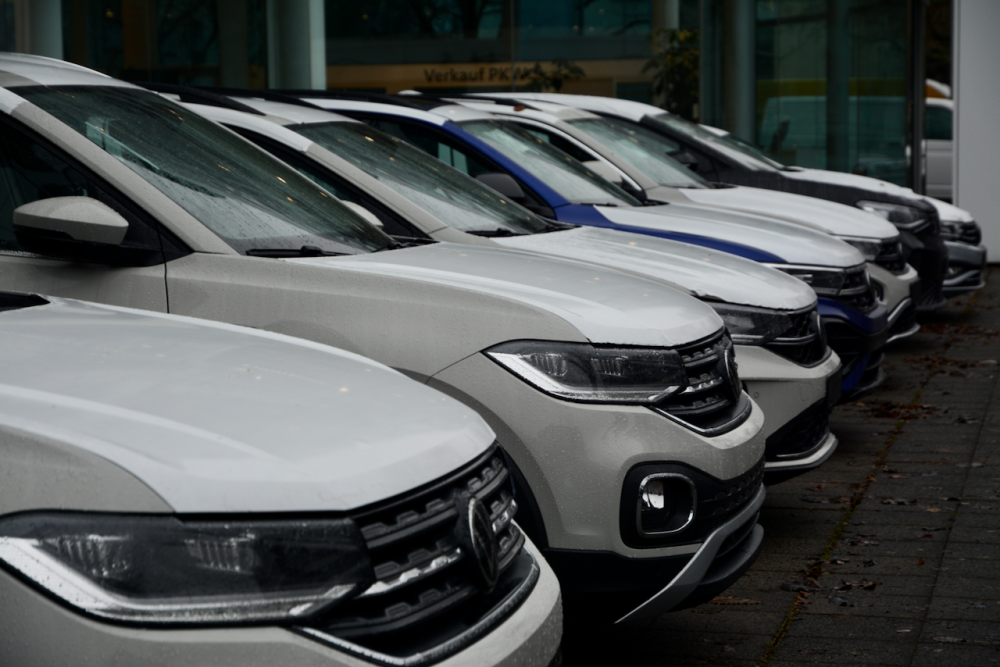Auto Dealers Intensify Opposition To Mandatory EV Sales

Table of Contents
Financial Burden of EV Infrastructure and Training
The high cost of transitioning to EV sales and service is a major source of dealer opposition to mandatory EV sales. Dealerships face significant upfront investment to handle the new technology. This includes substantial costs associated with EV infrastructure and training.
- High upfront costs: Upgrading facilities to accommodate EVs requires installing charging stations, purchasing specialized tools for EV maintenance, and investing in battery technology training for technicians. These costs can run into hundreds of thousands of dollars per dealership.
- Lack of government support: Many dealers feel they are shouldering the financial burden of the EV transition alone. They argue that government support for infrastructure upgrades is insufficient and doesn't adequately cover the expenses involved in adopting EV technology. This includes the costs of installing Level 2 and DC fast chargers, as well as the necessary grid upgrades to support increased electricity demand.
- EV maintenance training: The complexity of EV battery technology and repair necessitates significant investment in comprehensive training programs for technicians. This involves specialized training on high-voltage systems, battery diagnostics, and other unique aspects of EV maintenance.
- Return on Investment (ROI): Dealerships may struggle to recoup these substantial investments quickly, especially considering the sometimes lower profit margins associated with EV sales compared to internal combustion engine (ICE) vehicles. This financial risk is a key driver of dealer resistance to mandatory EV sales.
Consumer Demand and Market Readiness Concerns
Another significant concern voiced by auto dealers revolves around consumer demand and market readiness for the rapid adoption of electric vehicles.
- Exceeding consumer demand: Dealers worry that mandated sales targets might significantly outpace actual consumer demand for EVs, leading to unsold inventory and substantial financial losses. This is particularly relevant in areas with limited charging infrastructure or low public awareness of EV benefits.
- Range anxiety and charging infrastructure: Range anxiety, the fear of running out of battery charge before reaching a charging station, remains a significant barrier to EV adoption. The lack of widespread and reliable public charging infrastructure further exacerbates this issue. The uneven distribution of charging stations across different regions is another critical factor impacting consumer confidence in EVs.
- Consumer perception: Consumer perception of EV reliability, affordability, and performance plays a critical role in market acceptance. Negative perceptions, often fueled by misinformation or limited personal experience, can hinder EV sales.
- The need for education and marketing: To increase consumer acceptance and demand for EVs, there's a crucial need for effective education and marketing initiatives that address consumer concerns and highlight the benefits of electric vehicles. This includes emphasizing factors like lower running costs, reduced emissions, and government incentives.
Impact on the Existing Automotive Workforce and Skill Sets
The transition to EVs will inevitably impact the existing automotive workforce and the skill sets needed for vehicle maintenance and repair.
- Job displacement: The shift away from ICE vehicles may lead to job displacement for mechanics specializing in internal combustion engines. These highly skilled professionals may need to undergo significant retraining to find employment in the EV sector.
- Retraining programs: The need for comprehensive retraining programs to equip existing automotive technicians with the skills required to service EVs is paramount. This requires substantial investment in specialized training facilities and educational resources.
- Skills gap: A significant skills gap in the EV repair industry could emerge as the transition accelerates. The lack of qualified EV technicians could delay maintenance and repairs, potentially impacting consumer confidence and the smooth functioning of the automotive sector.
- Long-term employment security: Dealerships are concerned about the long-term employment security of their current automotive professionals. Addressing this concern requires collaboration between manufacturers, dealerships, and government agencies to plan a strategic and supportive workforce transition.
The Role of Government Incentives and Support
Government incentives and support play a crucial role in mitigating the challenges faced by auto dealers during the EV transition.
- Targeted incentives: Governments need to implement targeted incentives and support programs that help dealers adapt to the changes. These could include financial assistance for infrastructure upgrades, training programs, and tax credits for EV sales.
- Public-private partnerships: Effective public-private partnerships are essential to facilitate the development of charging infrastructure and comprehensive training programs. This shared responsibility can alleviate the financial burden on dealers and expedite the transition.
- Consumer incentives: Consumer incentives, such as tax credits and rebates, can significantly boost demand for EVs, helping dealers sell their inventory and recover investments more rapidly. This can ease financial pressures on dealers and encourage faster adoption.
Conclusion
The intensifying opposition from auto dealers to mandatory EV sales underscores the complex challenges inherent in the rapid transition to electric vehicles. Addressing concerns about infrastructure costs, consumer demand, and workforce retraining is crucial for a successful and equitable transition. Effective collaboration between government agencies, automotive manufacturers, and dealerships is essential to create a sustainable path forward. Ignoring the concerns of auto dealers could jeopardize the overall success of the transition to mandatory electric vehicle sales. To facilitate a successful transition to EVs, a collaborative approach that addresses these crucial issues is vital. We must work together to overcome obstacles and achieve a sustainable and successful future for the automotive industry and the environment.

Featured Posts
-
 10 Essential Film Noir Movies You Need To See
May 10, 2025
10 Essential Film Noir Movies You Need To See
May 10, 2025 -
 Us Immigration Debate The Case Of Kilmar Abrego Garcia And El Salvadors Gang Problem
May 10, 2025
Us Immigration Debate The Case Of Kilmar Abrego Garcia And El Salvadors Gang Problem
May 10, 2025 -
 Controversia Por Arresto De Estudiante Transgenero El Debate Sobre Banos Y Genero
May 10, 2025
Controversia Por Arresto De Estudiante Transgenero El Debate Sobre Banos Y Genero
May 10, 2025 -
 Harry Styles Debuts Retro Mustache In London
May 10, 2025
Harry Styles Debuts Retro Mustache In London
May 10, 2025 -
 Dakota Johnsons Role Choices The Chris Martin Factor
May 10, 2025
Dakota Johnsons Role Choices The Chris Martin Factor
May 10, 2025
